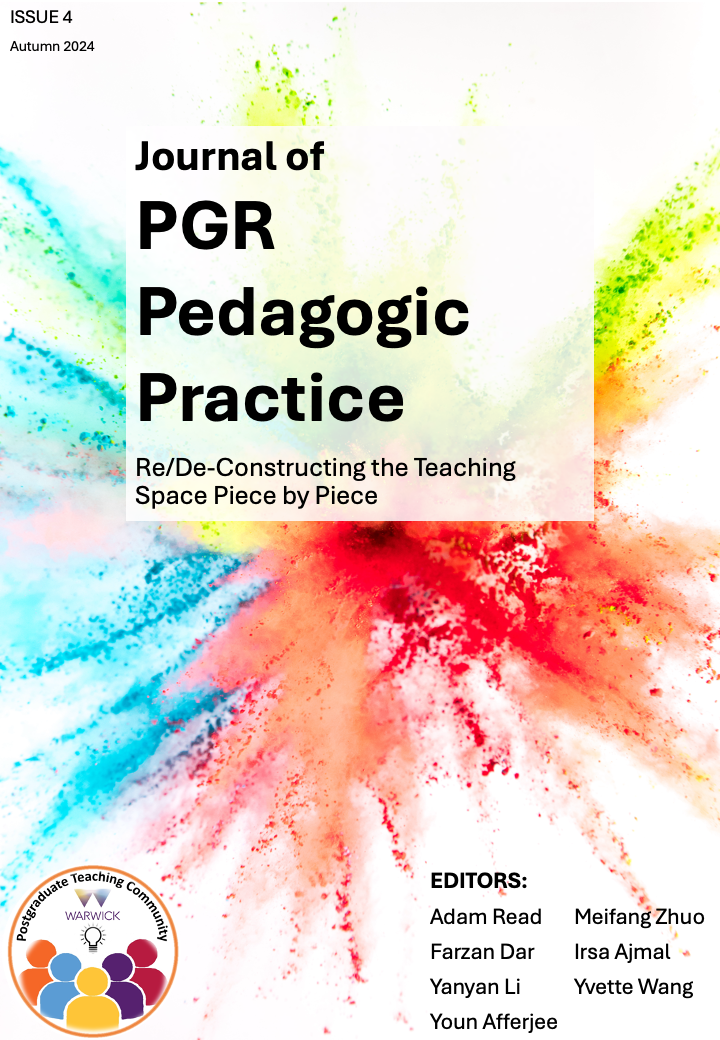Navigating the liminal space: Enhancing film teaching through anonymous feedback, digital collages, and advocacy
DOI:
https://doi.org/10.31273/jppp.vol4.2024.1789Abstract
This reflective piece focuses on the strategies of designing seminars that foster inclusivity and belonging, mainly when teaching in a liminal space as a Graduate Teaching Assistant (GTA). It requires a commitment to understanding diverse student needs, including A-level subjects, learning difficulties, neurodiversity, LGBTQIA+ identities, ethnicity, socio-economic backgrounds, and more. Alongside the module convenor’s guidance and departmental procedures, a GTA’s identity and expertise play a crucial role in shaping the classroom atmosphere. My interdisciplinary PhD research, which focuses on co-creating films with participants facing mental health challenges, informs my view of students as co-creators. As a Staff-Student Liaison Committee (SSLC) representative, I am dedicated to upholding students’ dignity, autonomy, and contributions to the university and society while aiming to provide them with the ethical understanding needed to navigate complex 21st-century challenges. After each seminar, I value anonymous student feedback to tailor my content, listening to their needs and questions, and incorporating audiovisual and interactive material to promote participation, especially among quieter students. With this piece, by sharing my lived experiences as a GTA, I intend to contribute to a collective knowledge base and foster dialogue and collaboration among my peers.
Downloads
Published
Issue
Section
License
Copyright (c) 2024 Hande Cayir

This work is licensed under a Creative Commons Attribution 4.0 International License.




